SOL by Ricardo Cases
スペイン人フォトグラファー、リカルド・カセス(Ricardo Cases)の作品集。「EL PORQUÉ DE LAS NARANJAS」(MACK, 2014)で取り組み始めた輪郭をなぞるように、同じくスペインのイベリア半島東部に位置する地中海沿岸地域「レバント」のクリシェ(※註)を再考する。太陽を描いて集める遊びで子供が作ったかのようなアプローチを試み、その本質を求め、その感動によって我を忘れ、その固有性や美しさ、地域の経済をいかにして太陽が決定づけているのかを問い、レバントのまばゆい太陽の光にどっぷり漬かりこんだ一作。
「私は、ここから異様に近くて不気味な存在感を放つとある星が見下ろす、岩だらけで荒れ果てた惑星に生まれた。空は、直に見る勇気が出ないほどの巨大な火の玉で囲われている。首をヒリヒリとなぞる熱い風と生きることが当たり前だと思って育ち、恥ずかしさに顔を伏せていた。空を安全に見る唯一の方法は、地面に落ちた影を見つけ泉や鏡の中に映るそれをこっそりと覗き込むことだった。正しいテクニックと宇宙の距離を意識し、恐れと警戒を忘れなければ、三角測量で自分なりの方法を見つけることができる。」
-ルイス・ロペス・ナヴァッロ(Luis López Navarro)、本書収録テキスト『SUN ERROR』より
SOLはローマ神話では太陽神、天文用語では火星での1日の意。
※註 お決まりの表現、ステレオタイプ
Continuing the line started in El porqué de las naranjas (MACK, 2014), Ricardo Cases investigates again the cliché of the Levantine coast. Approaching his work as if it was child’s play consisting of representing the sun, the author is plunged into the blinding light of the Levantine summer seeking its essence, letting himself be carried away by the sensations and questioning how the sun determines the identity, aesthetics and local economy.
“I was born on a rocky, inhospitable planet dominated by a star that looms too close. My sky is circled by a massive ball of fire that I don’t dare look at directly. I have grown accustomed to living with its burning breath on my neck, my head hung down in shame. The only way I can gaze at it safely is to discreetly seek out the shadows it casts on surfaces, its reflection in wells and mirrors. With the right technique and an awareness of cosmic distances you can learn to find your way by triangulation; with caution, with fear.”
Extract from the text by Luis López Navarro included in the book Sol.
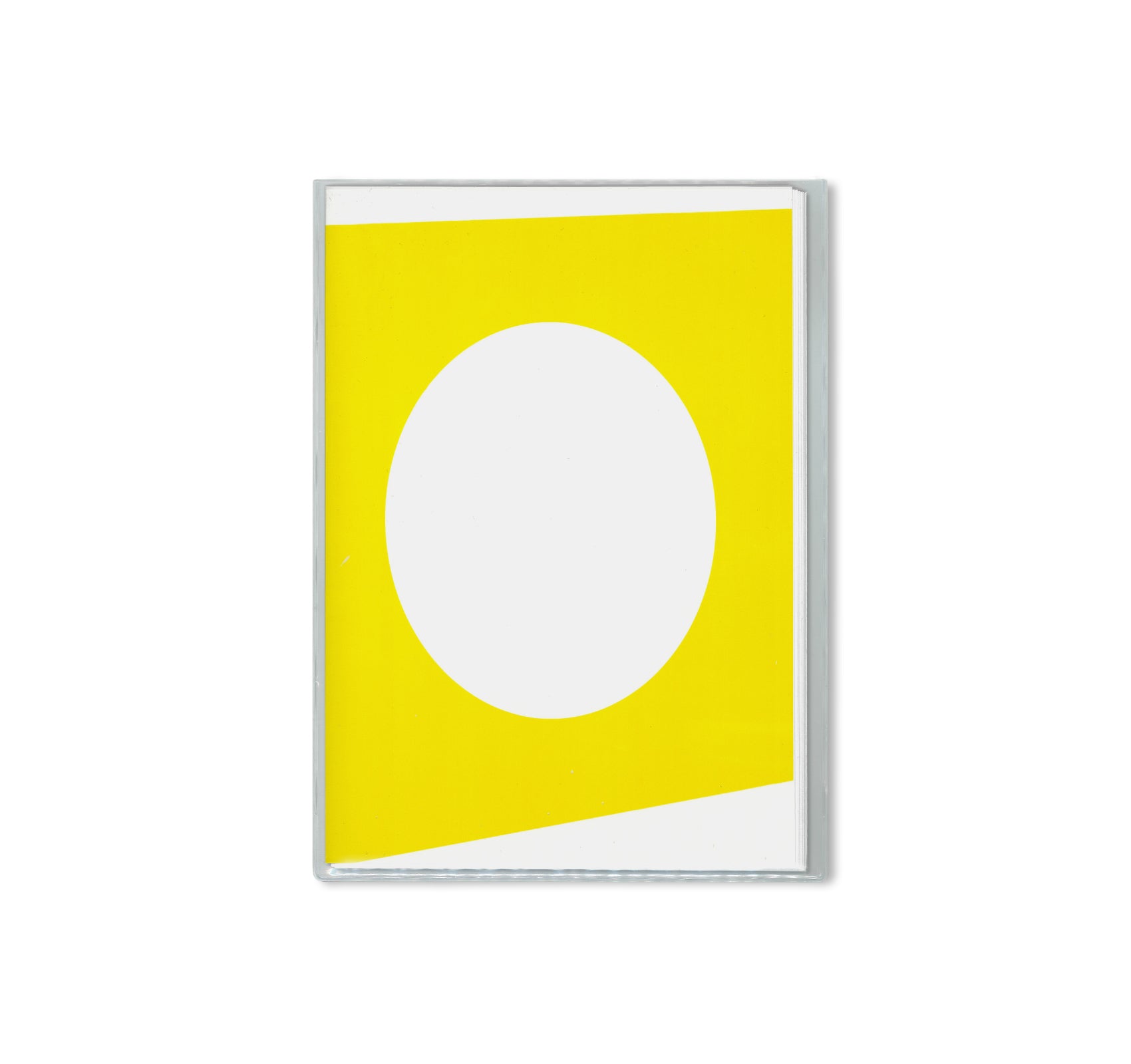

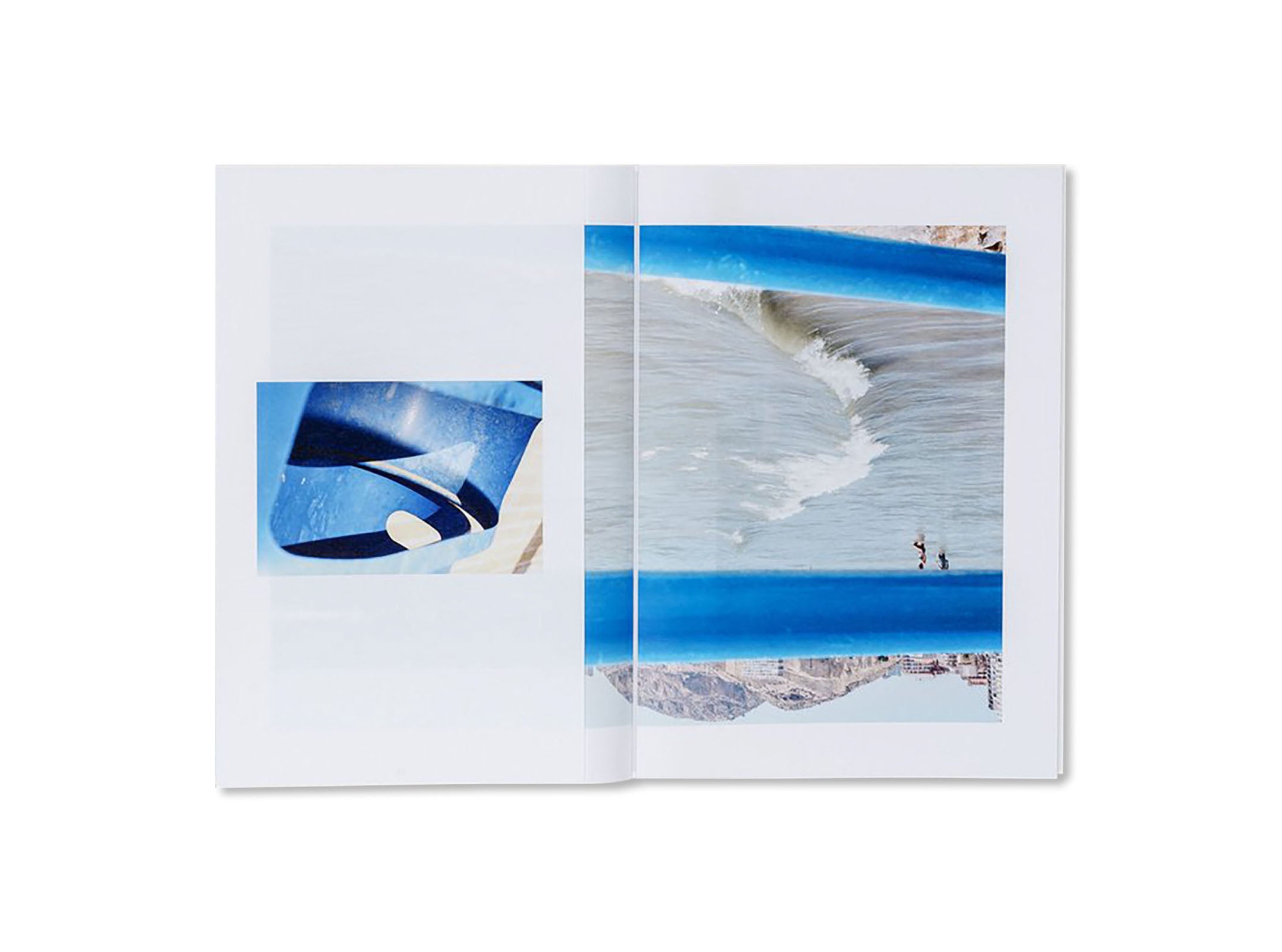
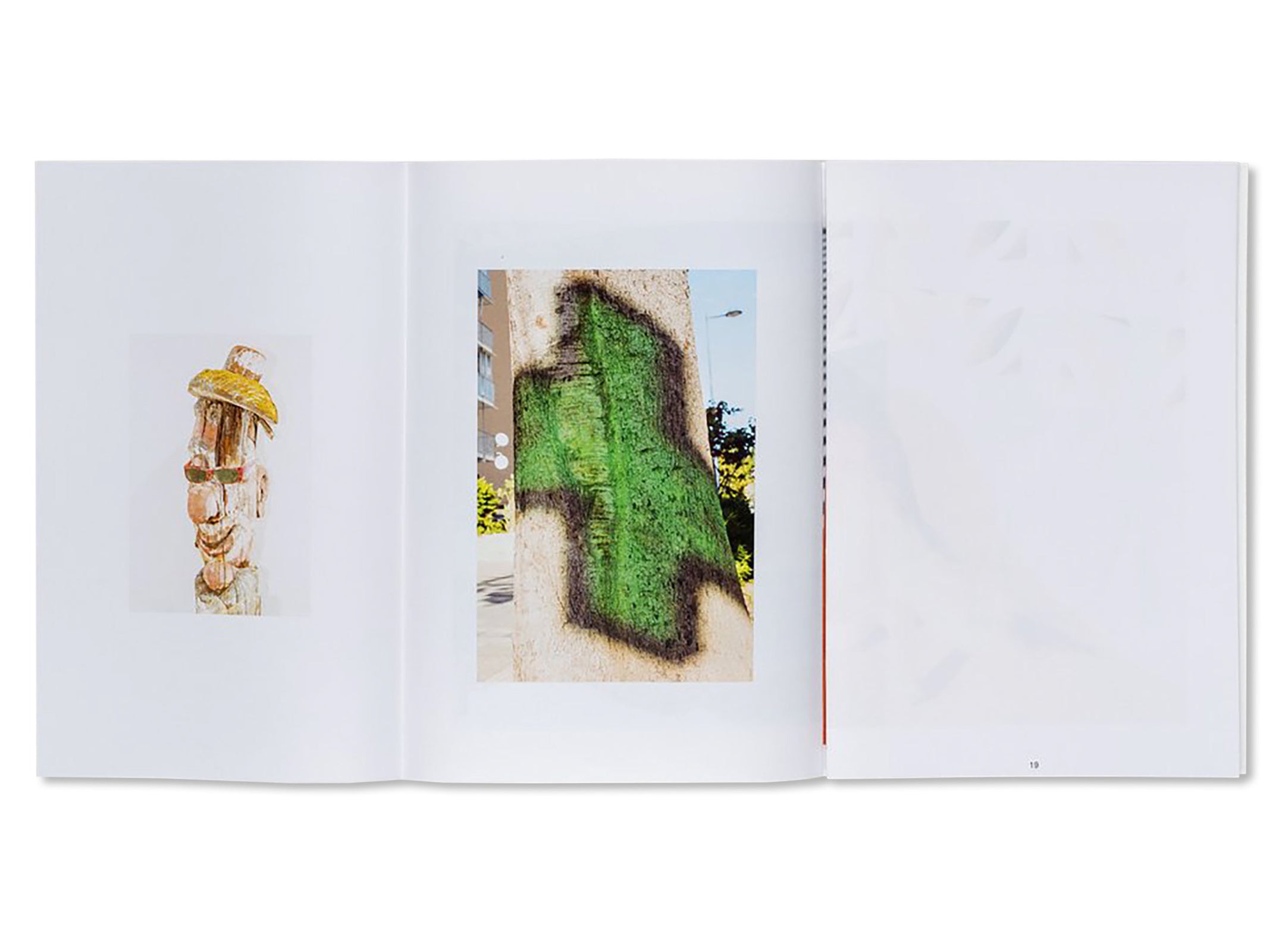

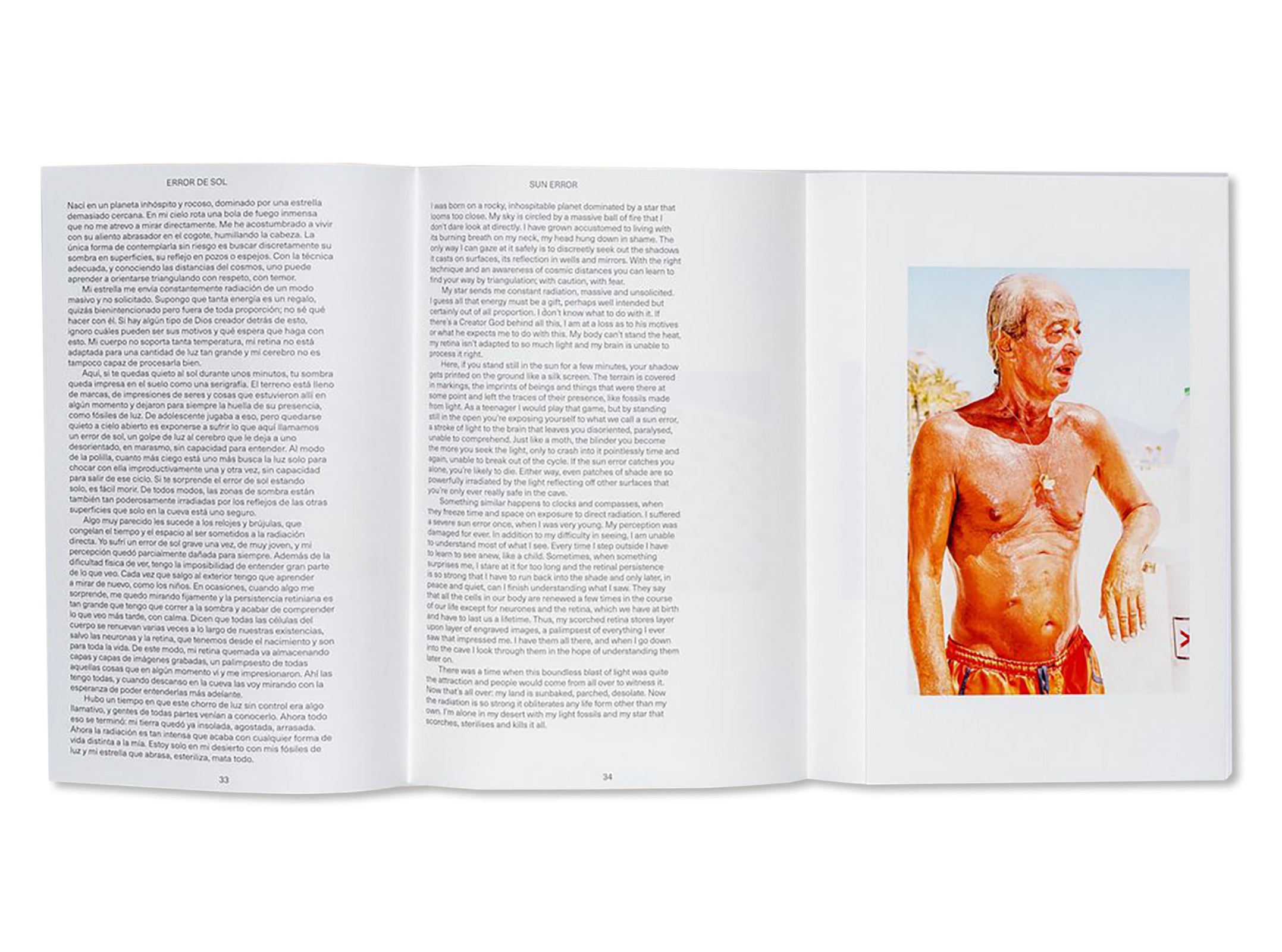
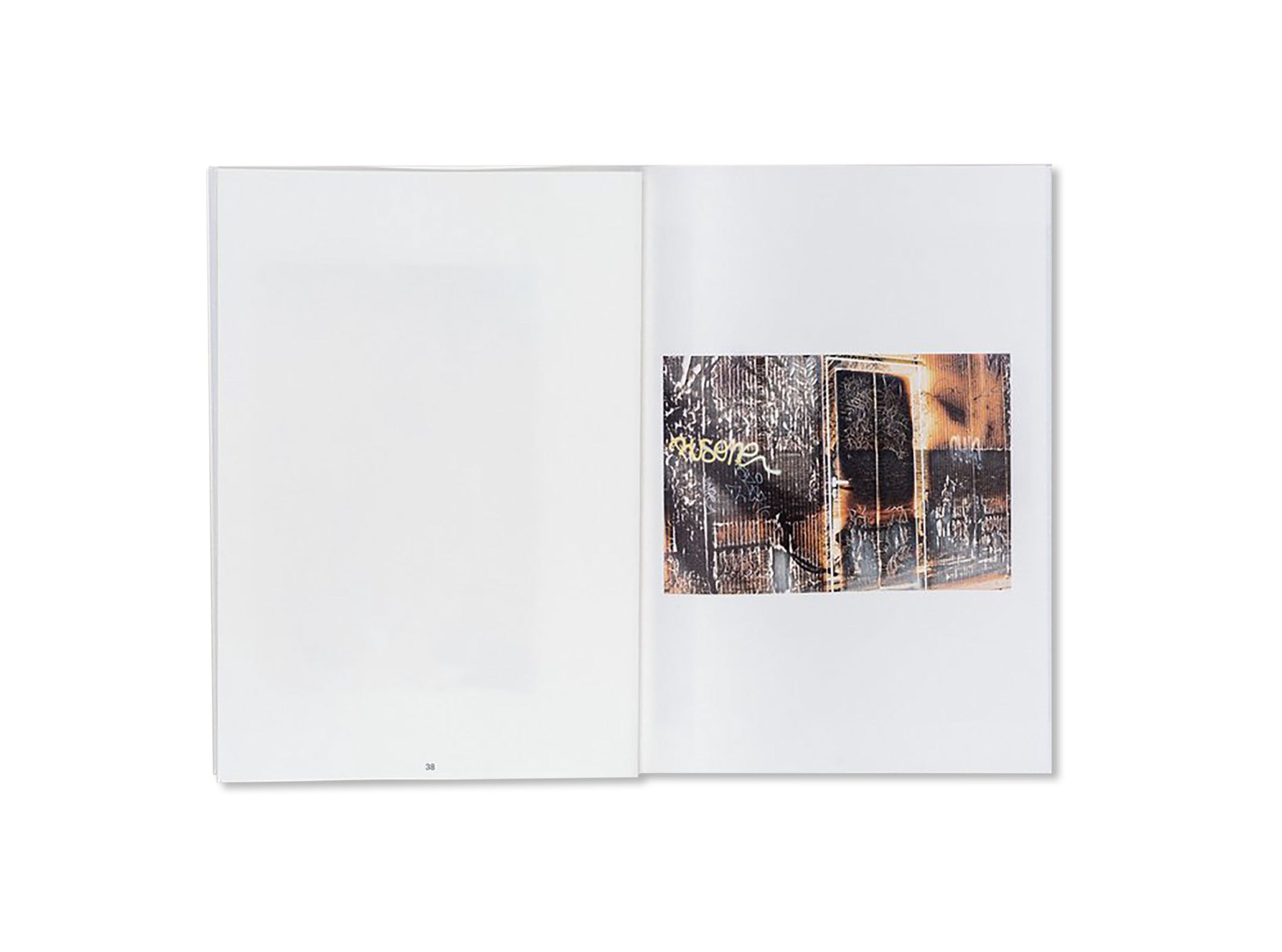
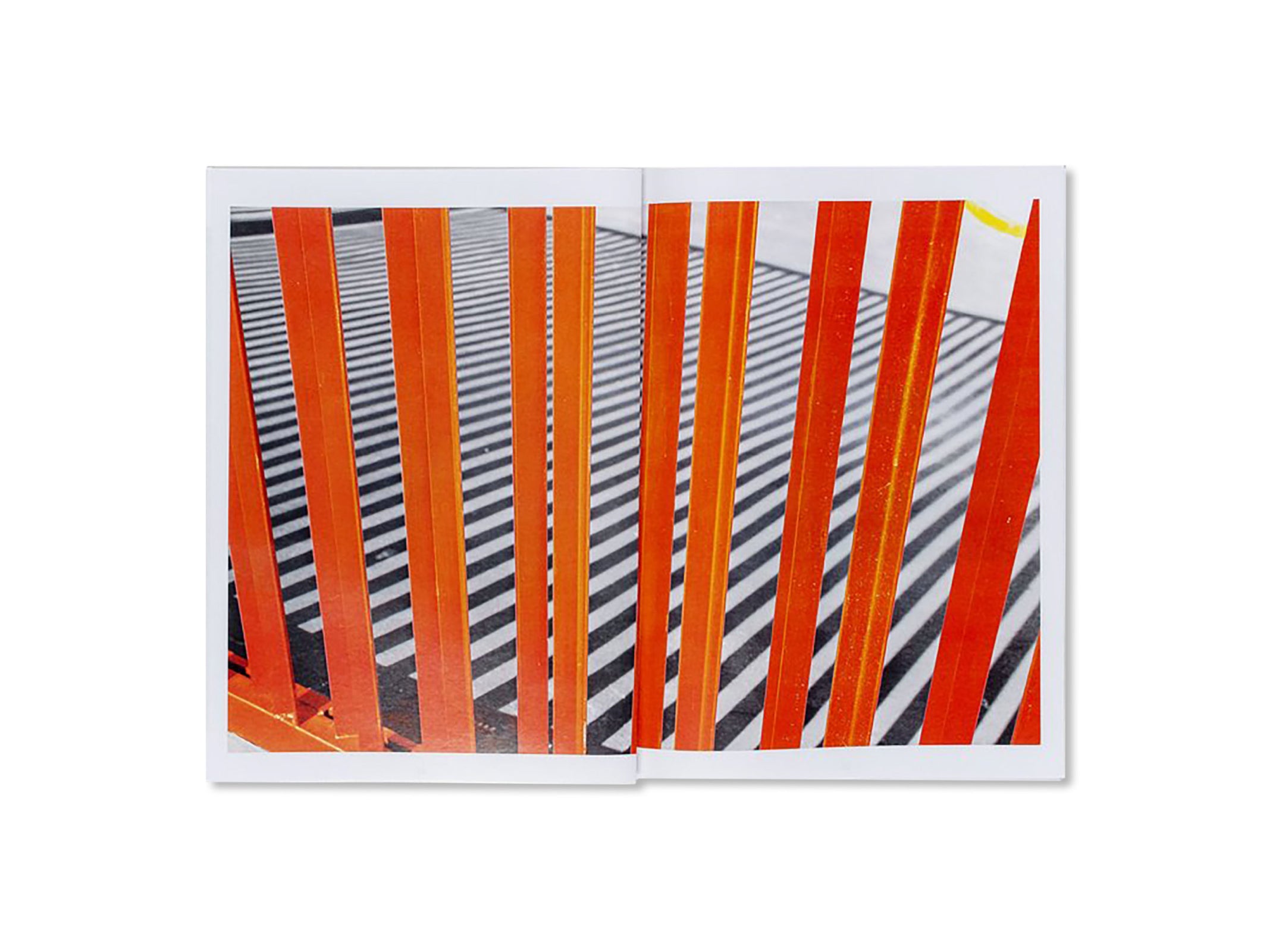
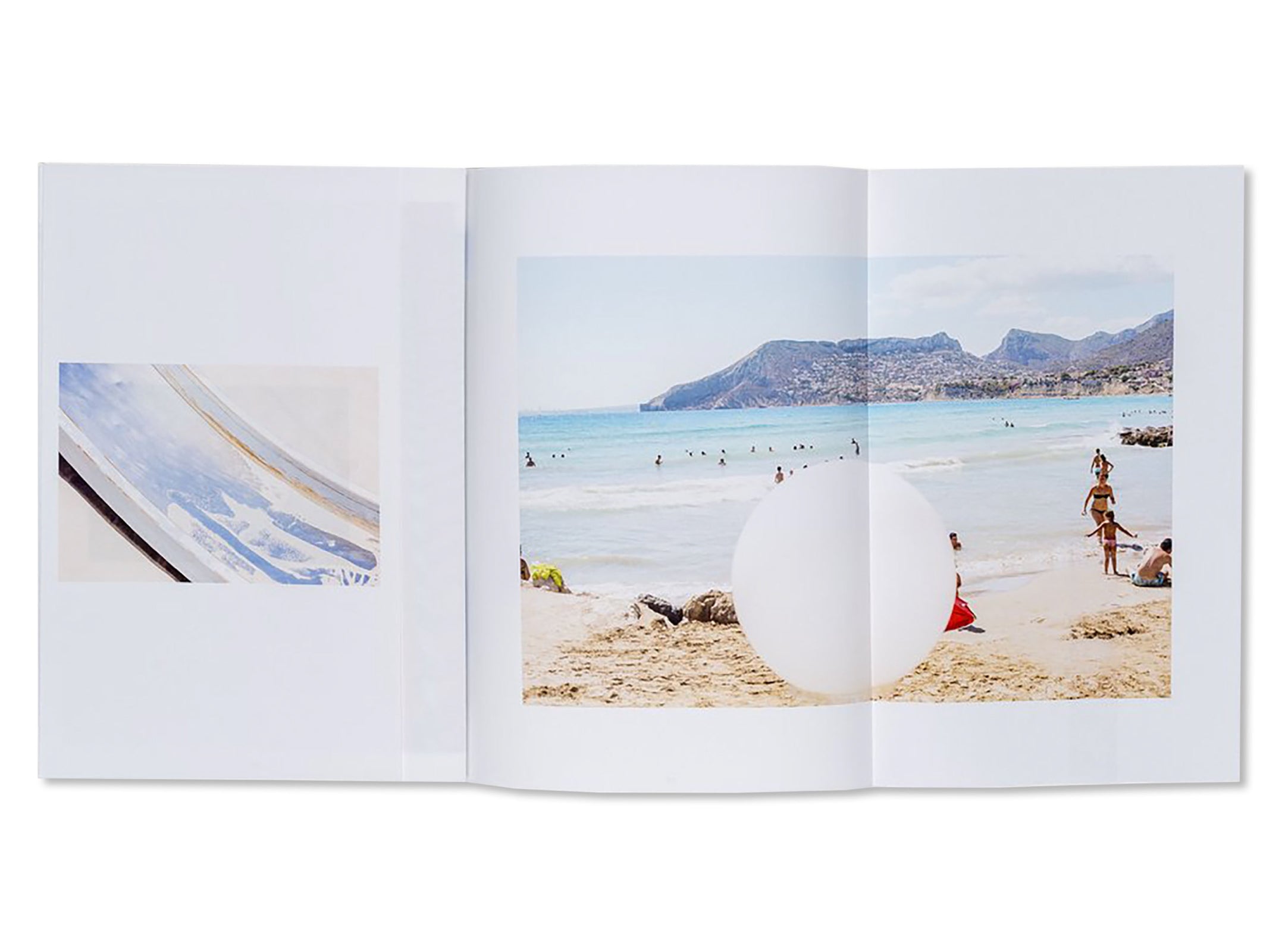
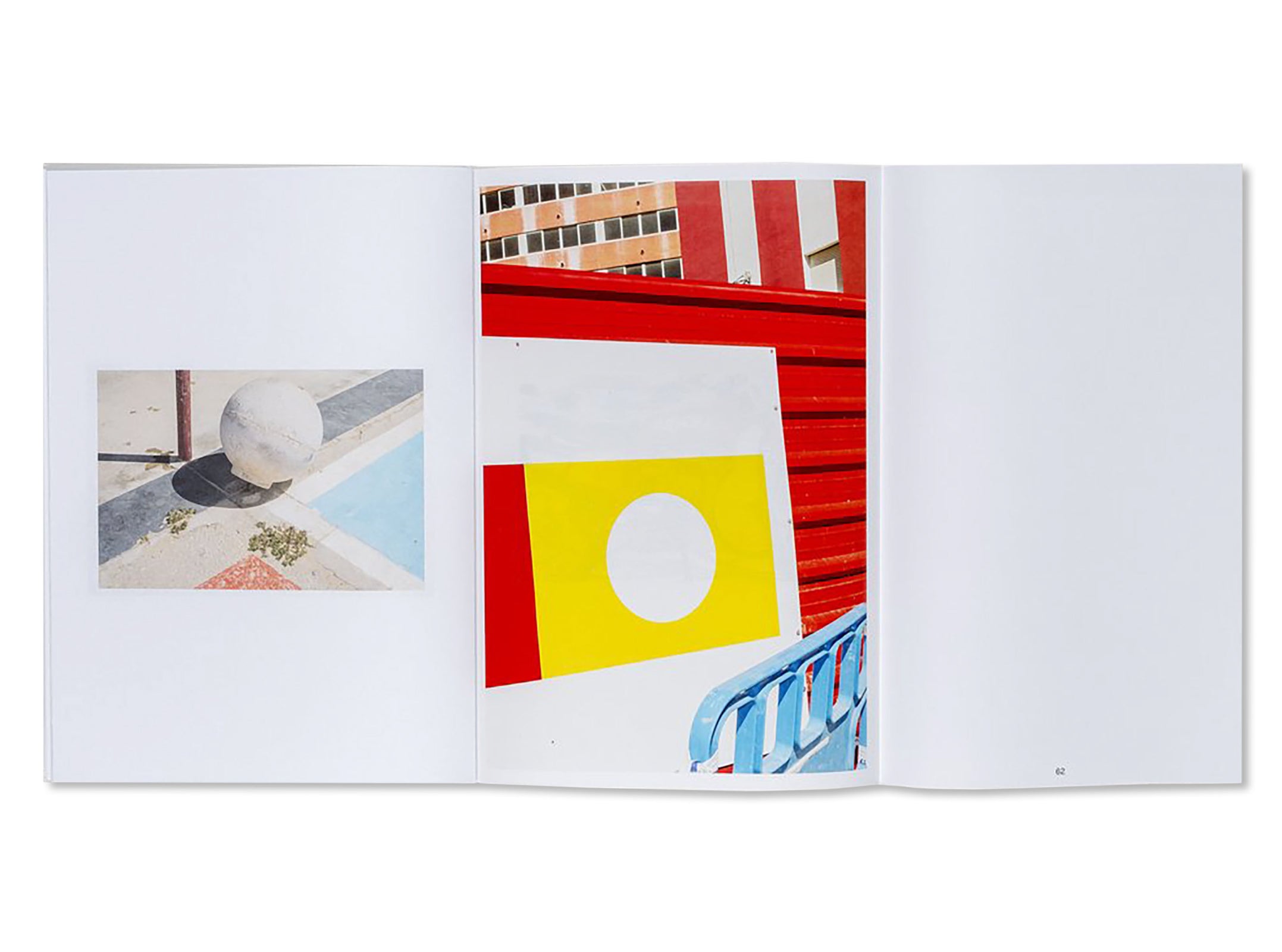
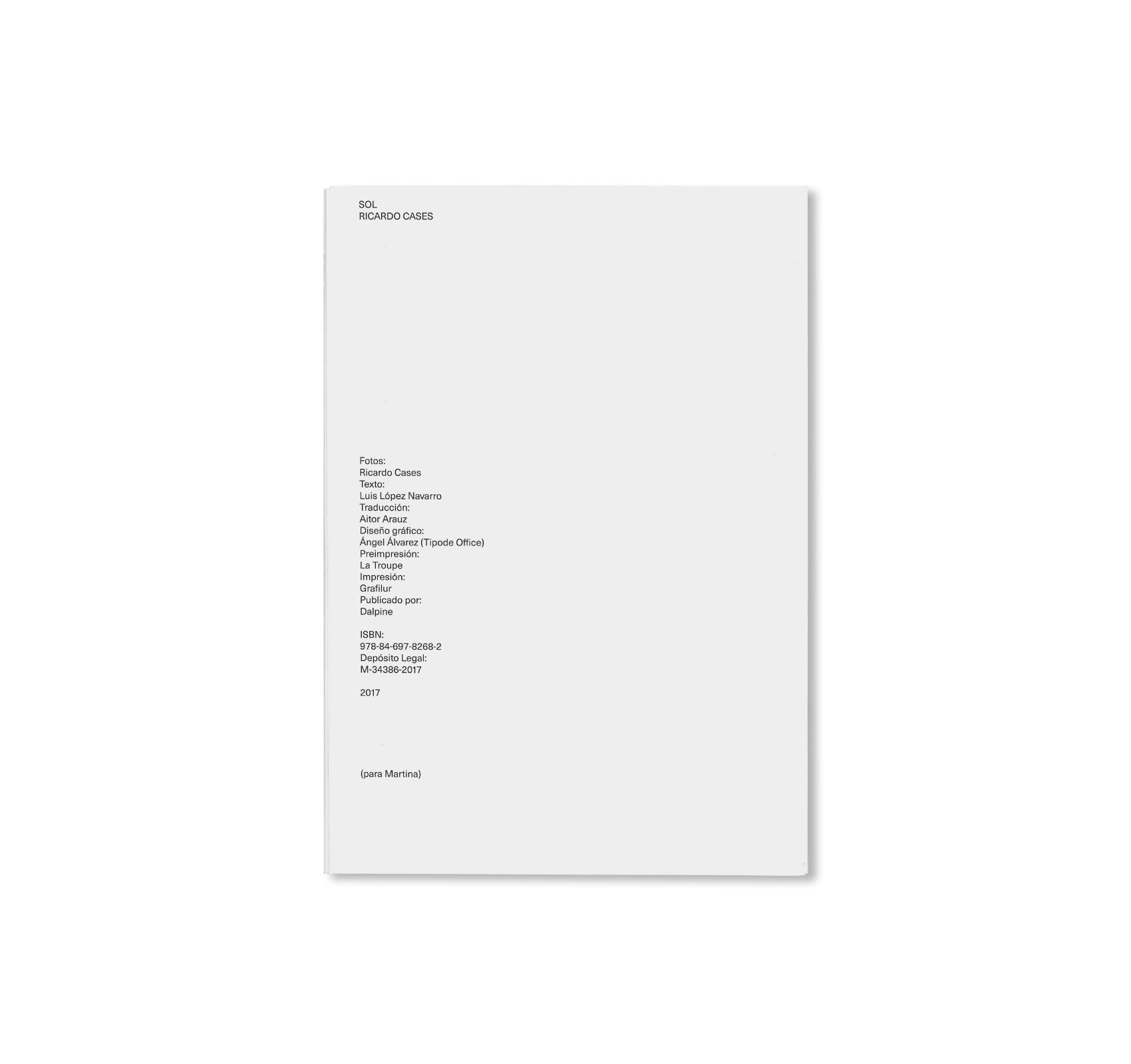
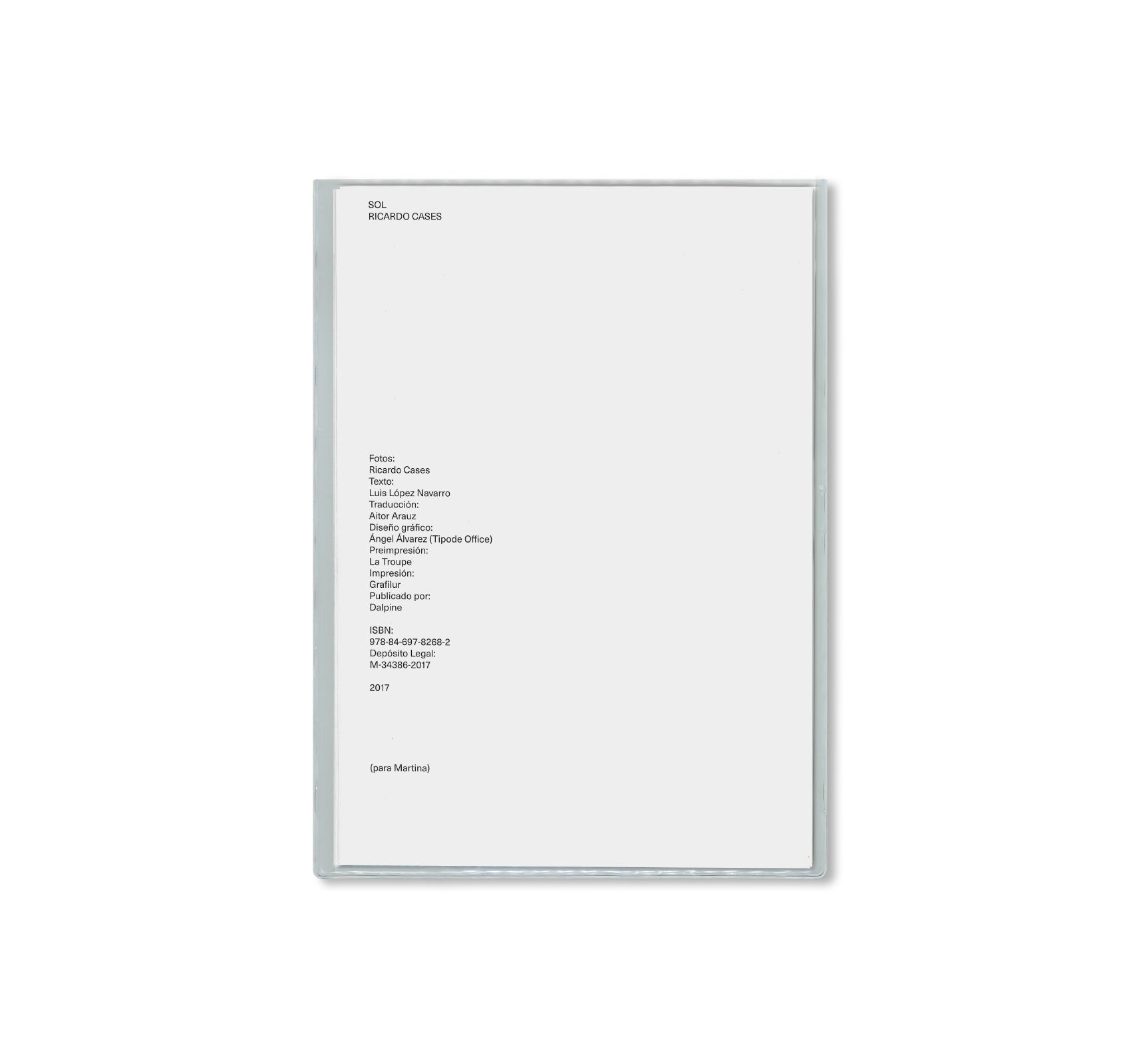
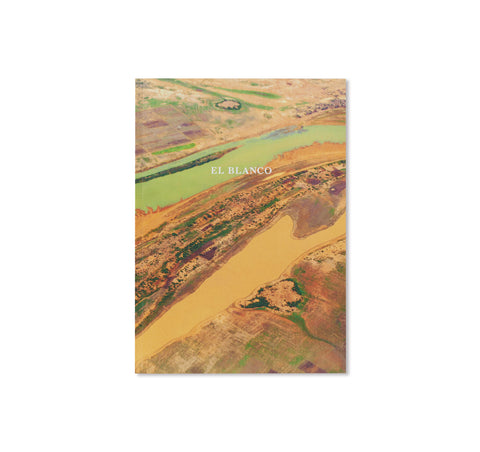
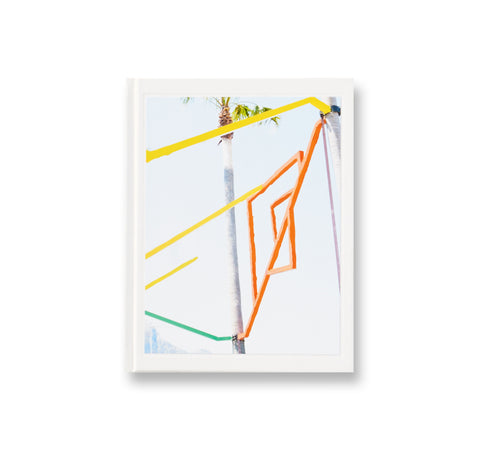
![EL PORQUÉ DE LAS NARANJAS by Ricardo Cases [SIGNED]](http://twelve-books.com/cdn/shop/products/150303_3793_faf33e95-8a9c-4c4d-a878-f9c5fb93a32e_large.jpg?v=1571703942)